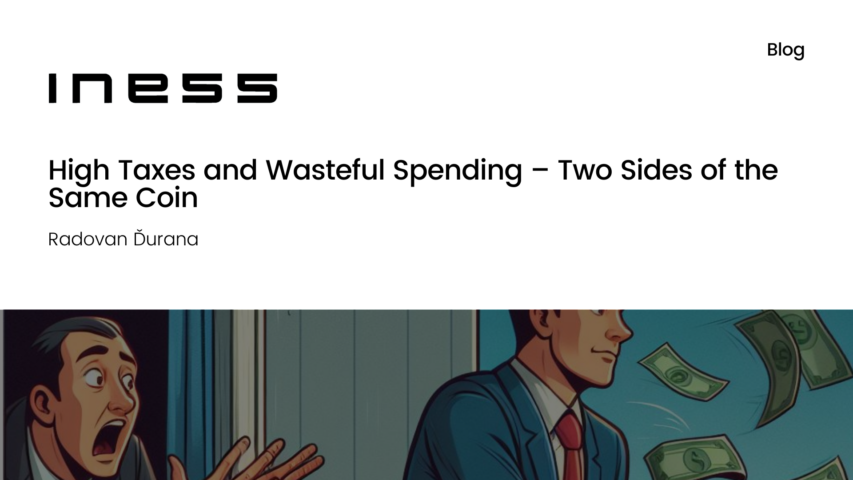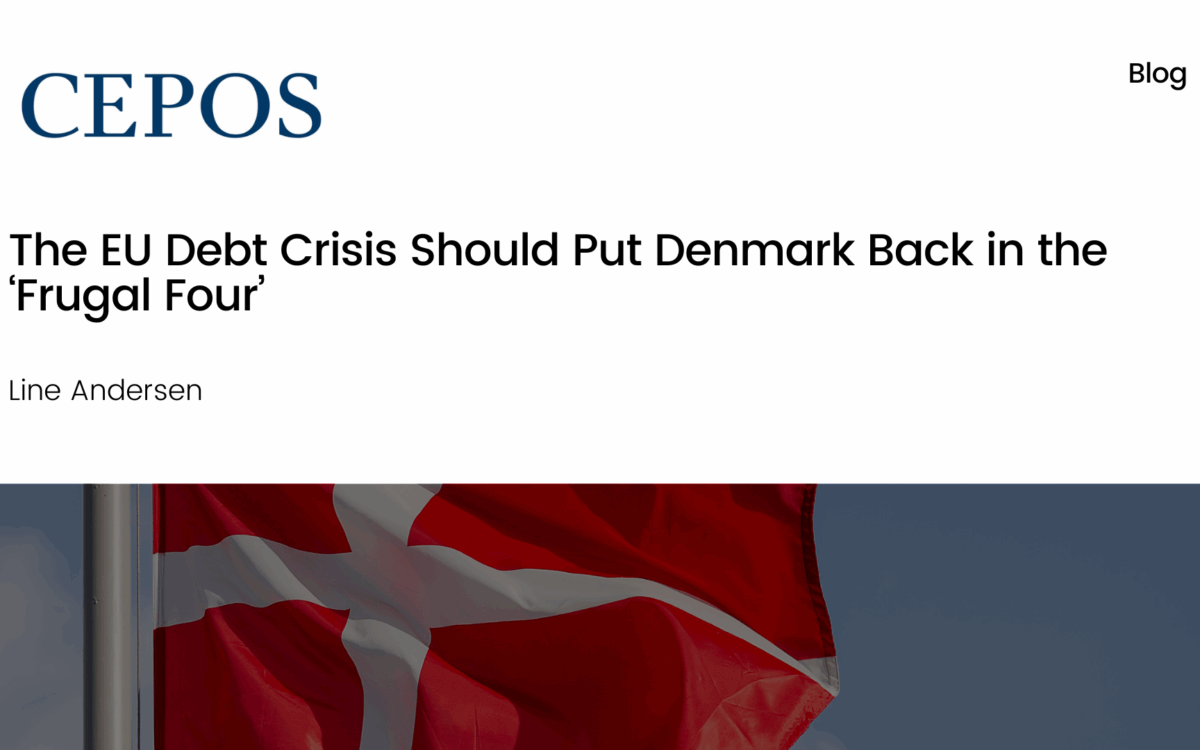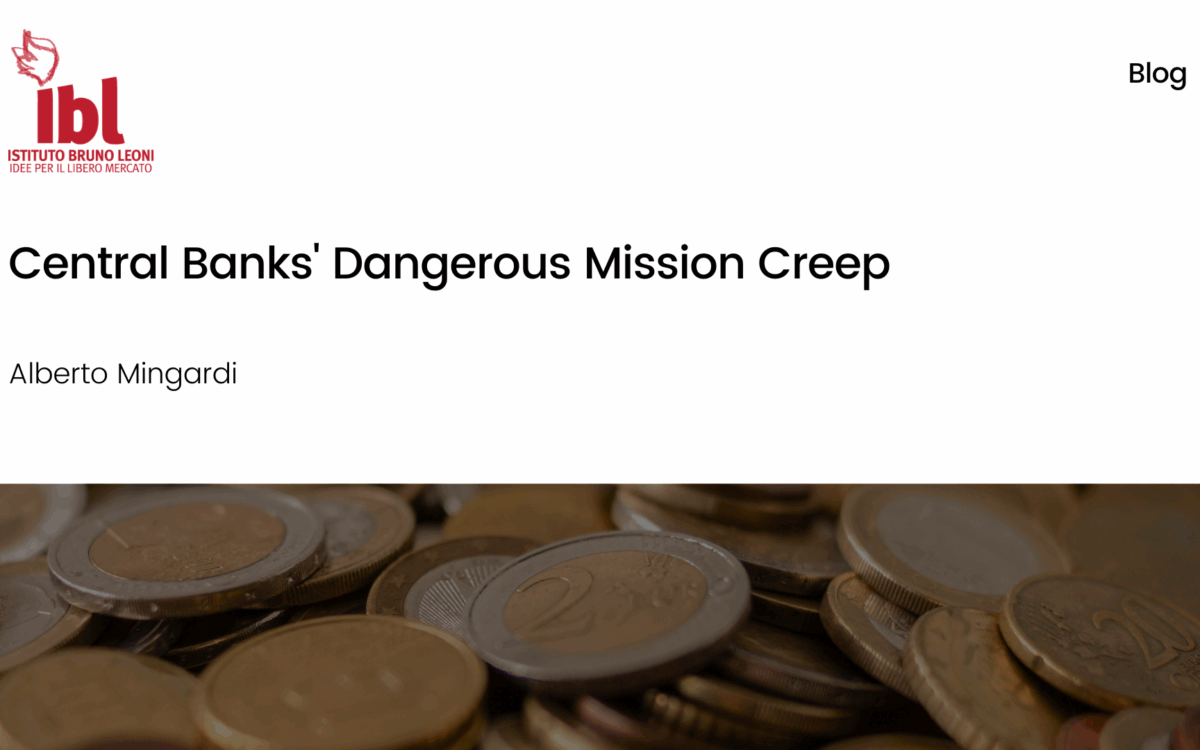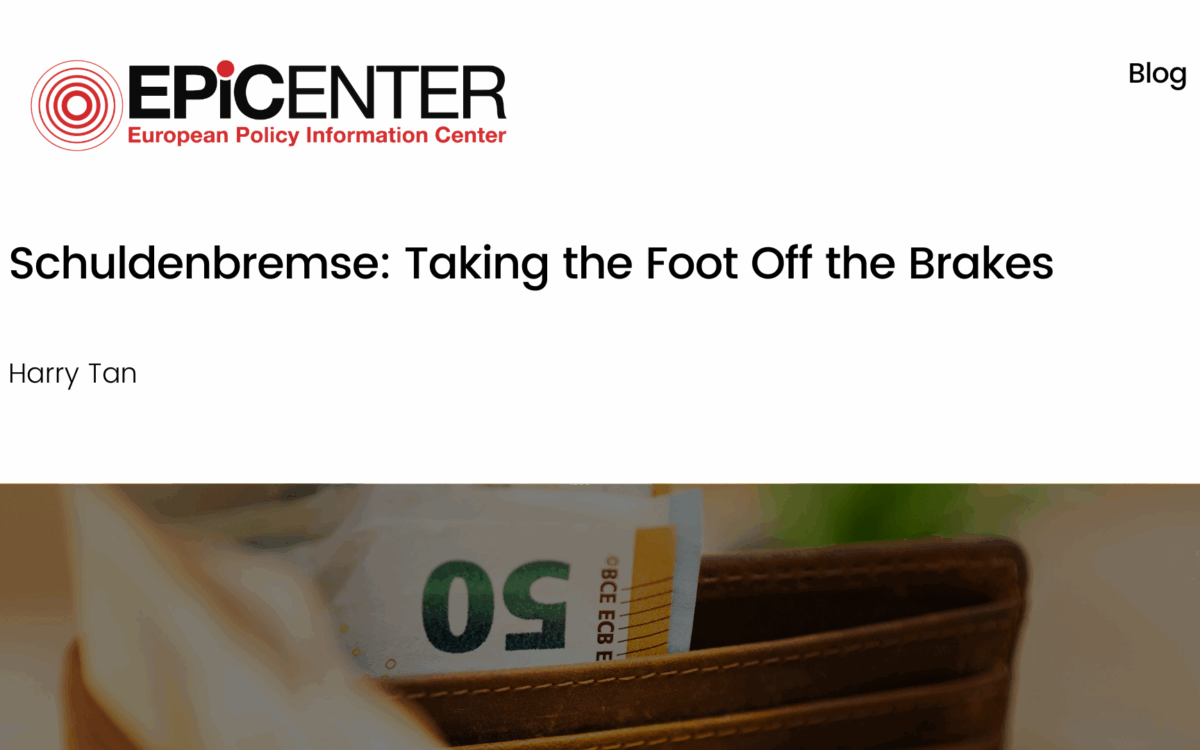High Taxes and Wasteful Spending – Two Sides of the Same Coin

High Taxes and Wasteful Spending – Two Sides of the Same Coin
Radovan Ďurana // 11 January 2024
The last budget of former Finance Minister Peter Kažimír, which was presented in 2019, before he left for the comfortable office of the National Bank of Slovakia, estimated a deficit of 0.1 per cent of the GDP – some €100 million. Back then, the state ended up with a €1.3 billion deficit instead. The next budget was also supposed to be nearly balanced, but then came COVID-19, and the planned deficit of 0.5 per cent jumped to 10 per cent of the GDP.
At first glance, it may appear that the state’s super-expensive COVID-19 measures were responsible for the large deficit, but this is not the whole truth. A near-balanced budget can be achieved if there is a surge in tax revenues due to the growth of the economy. However, the country’s spending patterns are set in such a way that any slowdown in the economy will push the deficit sky-high. This was the case in Slovakia, which is run on a legacy of irresponsible ‘we have to share economic growth with the citizens’ thinking.
Although the energy crisis last year made it much more difficult for the government to realise its consolidation efforts, the record deficit is deemed to be ‘our own fault’. There is a deeply entrenched political culture in Slovakia where the one who helps everyone is deemed the hero rather than the one who helps the needy. The previous government’s approach to energy could be illustrated by its slogan, ‘no swimming pool can remain unheated’: flat-out help for all, no matter what it took. We see it in family policy, we see it in the unlimited entitlement to free healthcare, we see it in 13th pensions (a social allowance paid to pensioners, presented as an additional pension benefit by the government), we see it in education and other sectors. It is not even a manifestation of social democracy – it is a manifestation of budgetary populism and political short-sightedness.
Even though its economy is growing gradually, Slovakia will end up with a deficit of €7.3 billion in 2023. Every sixth euro of spending (European Union (EU) transfers excluded) has to be borrowed. If we were to abolish the budget-heavy Ministry of Labour, with all its €5 billion worth of benefits, and the Ministry of the Interior, which has 40,000 employees, it would still not be sufficient to eliminate the deficit. That is how deep the problem is.
An economist would naturally ask how best to embark on a deficit reduction path. The previous technocrat caretaker government, the Ódor administration, drew up a list of austerity measures that gave 60 per cent weight to tax increases. For them, however, cutting spending was a necessary condition for consolidation.
Budget populists, understandably, have a different metric. The need to ensure the adequacy of social spending is unknown to them, which is why taxes, and only taxes, must be raised. This technique has already been successfully tested by Kažimír during the great financial crisis. The fact that this will slow down the country’s already negligible economic growth, when Europe is standing on the precipice of a recession, is irrelevant. What is important is the fulfilment of promises that win elections. Every promise has a price, and Slovaks will pay this price through 18 different tax hikes, most of which will come into effect on 1 January 2024.
The new government had to make difficult decisions regarding how to finance their promises. Eventually, it decided that yes, we will pay the full 13th pension – even to those pensioners who receive a pension of €1,700 a month – and that this will be financed by cutting savings in the funded pillar (capital savings) and transferring them to the pay-as-you-go (PAYG) system. That is to say, take a third of the future savings of today’s savers and transfer them to today’s pensioners. In return, savers will receive a very doubtful future state pension from a PAYG system that is expected to incur a loss of almost 5 per cent of the GDP in 2060.
Yes, we do not want to reform state hospitals. We will continue to promise officially unlimited healthcare to all and pay doctors European wages. This is why we will raise health contributions for employees and freelancers, even though they are already amongst the highest in the EU.
Yes, we want to pay special parental pensions, child allowances, and a tax bonus to everyone, including the governor of the national bank. This is why we will tax the banks at the highest rate far and wide, at a 45 per cent effective profit tax rate.
Yes, we will continue the illusion of super-cheap energy for households – gas will be significantly cheaper in Slovakia in 2024 than in the Czech Republic, where there are no across-the-board compensations – this is why we will tax smokers and alcohol consumers even more heavily in addition to the above-mentioned taxes.
One could go on. I already have a name for this consolidation package: how to solidify wasteful public spending in the budget. Despite this long list of tax hikes, the budget deficit will remain at 6 per cent of the GDP next year, probably (again) the highest in the EU. This would indicate that there is another list of tax hikes being prepared in the rooms of the Ministry of Finance. It would be misleading to say that circumstances have forced it. It would be even more misleading to say that this is a recovery of public finances. It is budget populism, all over again, and all that goes with it: slower economic growth, slower net wage growth, and less freedom for citizens.
The article was originally published on INESS’ blog.
EPICENTER publications and contributions from our member think tanks are designed to promote the discussion of economic issues and the role of markets in solving economic and social problems. As with all EPICENTER publications, the views expressed here are those of the author and not EPICENTER or its member think tanks (which have no corporate view).



